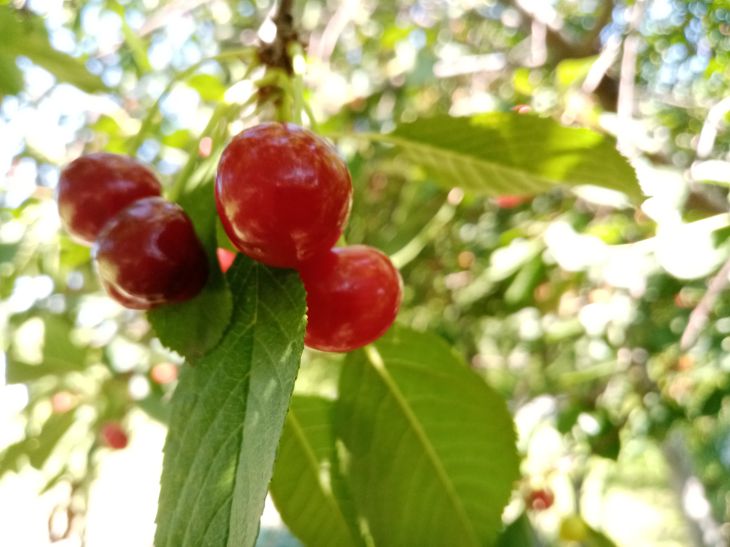A cherry orchard in bloom is a breathtaking sight.
A snow-white cloud of flowers promises a generous harvest of juicy berries.
However, gardeners often face the problem of empty flowers, when lush flowering does not lead to the formation of fruits.
Natural factors
The appearance of barren flowers on a cherry tree can be associated with various natural phenomena.
Sudden changes in temperature during flowering can damage delicate flowers, preventing them from forming ovaries.

Frosts are especially dangerous, as they can completely destroy the future harvest, emphasizes the expert of the online publication "BelNovosti", agronomist and landscape designer Anastasia Kovrizhnykh.
Weather conditions also play an important role in the pollination process. Prolonged rains or strong winds hinder the work of pollinating insects, which leads to insufficient pollination of flowers. The result is an abundance of barren flowers and a poor harvest.
Pollination problems
Insufficient number of pollinating insects is considered one of the main reasons for the appearance of barren flowers.
Cherry is a cross-pollinated crop, so for successful fruiting it is necessary to have other varieties of cherry or sweet cherry nearby.
The lack of suitable pollinator varieties means that the flowers do not receive enough pollen to form an ovary.
Gardeners are advised to plant several different varieties of cherries to ensure good pollination.
Age and health of the tree
Young cherry trees can produce a lot of empty flowers in the first years after planting. This phenomenon is considered normal, since the plant has not yet gained enough strength to form a full-fledged harvest.
On the other hand, old and weakened trees are also prone to the formation of barren flowers.
Lack of nutrients and disruption of metabolic processes lead to the tree being unable to ensure the development of all the fruits that have set.
Improper care
Illiterate care of a cherry orchard often becomes the reason for abundant barren flowers. Insufficient or excessive application of fertilizers disrupts the balance of nutrients in the soil, which affects the quality of flowering and fruiting.
Lack of regular pruning leads to thickening of the crown, worsening illumination and air circulation. Such conditions negatively affect the process of pollination and formation of the ovary.
Diseases and pests
Various diseases and pests can affect cherry blossoms, preventing normal fruit development. Moniliosis, coccomycosis and other fungal infections can destroy most of the blossoms, leaving the gardener with an abundance of barren flowers.
Insect pests such as cherry fly or weevil damage flowers and young ovaries, causing them to fall off. Timely preventive measures help maintain the health of the cherry orchard and ensure a good harvest.
Methods of combating barren flowers
To solve the problem of barren cherry blossoms, gardeners can take a number of effective measures. The correct choice of planting site, providing protection from cold winds and frosts, serves as a good basis for the healthy development of trees.
Regular pruning and crown shaping help improve lighting and air exchange. Balanced fertilization, especially phosphorus and potassium, strengthens plant immunity and improves flowering quality.
Attracting pollinating insects by planting honey plants and installing artificial bee houses significantly improves the pollination process.
In case of unfavorable weather conditions, gardeners can resort to manual pollination of flowers.









